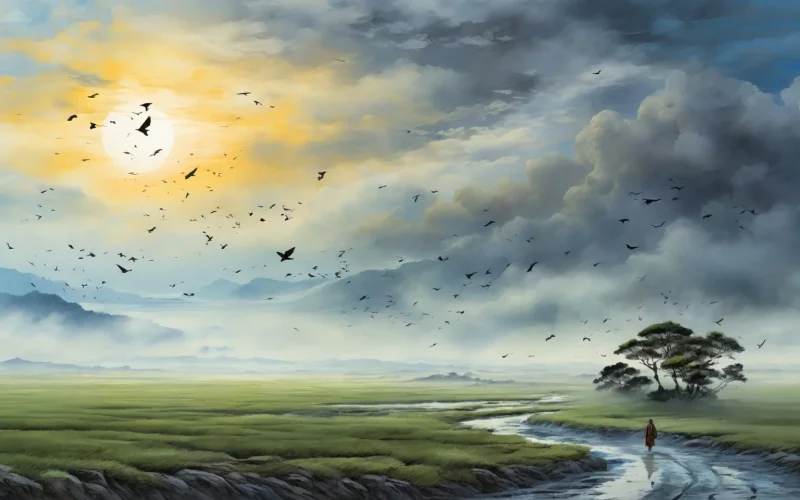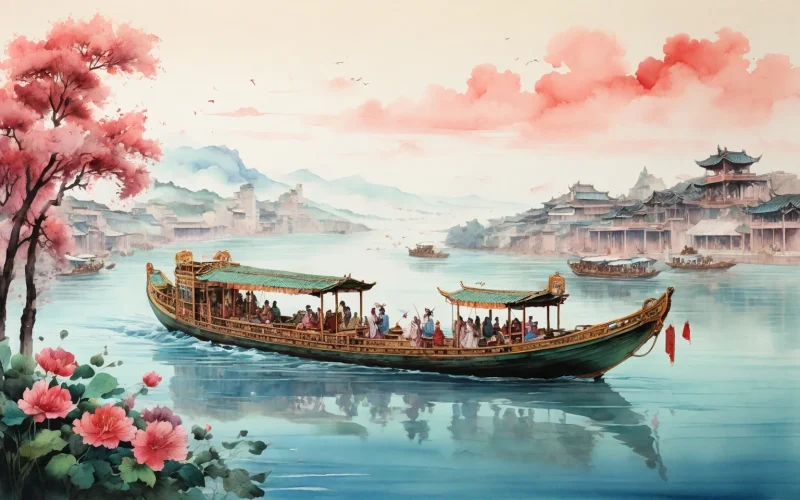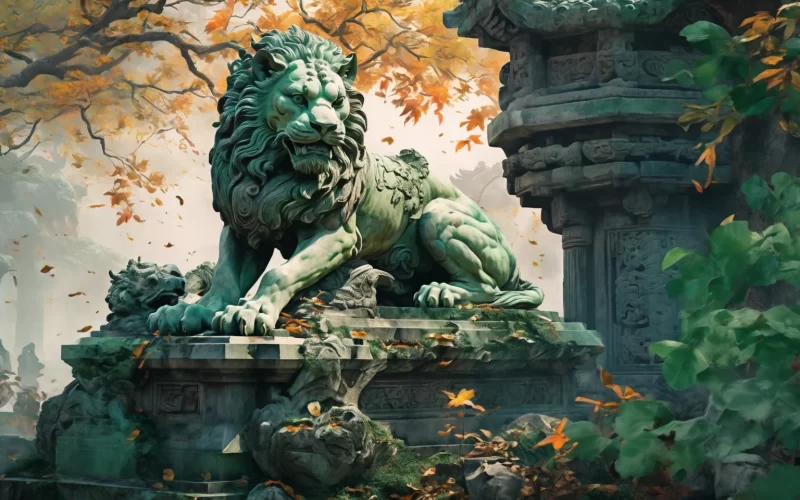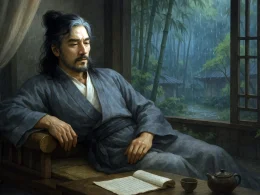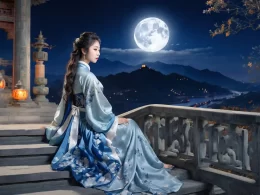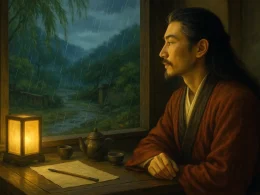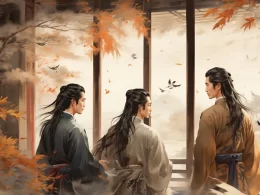The living are but passers-by,
And those are going home who die.
The sky and earth are hotels just
For all to grieve over age-old dust.
The Moon Goddess lives long in vain;
The sacred tree's cut down with pain.
The bleached bones can nor speak nor sing.
Could green pines feel the warmth of spring?
Ancestors and posterity,
Don't prize but sigh for vanity!
Original Poem:
「拟古十二首 · 其九」
李白
生者为过客,死者为归人。
天地一逆旅,同悲万古尘。
月兔空捣药,扶桑已成薪。
白骨寂无言,青松岂知春。
前后更叹息,浮荣何足珍?
Interpretation:
This poem explores the theme of life's impermanence, expressing the poet's insight into life and death as well as his contemplation on the changes of the world. Li Bai, known for his unrestrained and uninhibited character, harbored the ideal of "retiring after achieving success." However, the setbacks he faced and the fleeting nature of life led him to reflect more deeply on the transience of existence. This poem was written in such an emotional context, using a philosophical approach to explore the essence of life.
First Couple: “生者为过客,死者为归人。”
(The living are but passing travelers, while the dead have truly returned home.)
With concise and profound language, these lines encapsulate the brevity of life and the inevitability of death. The poet likens the living to temporary wanderers, while death is portrayed as the ultimate return. This transcendent perspective on life and death imbues the poem with a solemn philosophical tone.
Second Couple: “天地一逆旅,同悲万古尘。”
(The vast heavens and earth are but an inn for travelers, and all of humanity shares the sorrow of becoming dust through the ages.)
Here, the poet compares the universe to a mere lodging place, emphasizing the transient nature of all existence. No matter who they are, all beings eventually turn to dust. This broad perspective renders human life insignificant and evokes a sense of detachment and sorrow.
Third Couple: “月兔空捣药,扶桑已成薪。”
(The moon rabbit endlessly pounds its elixir in vain, while the once-mighty Fusang tree has turned to mere firewood.)
By invoking mythological imagery, these lines highlight life's impermanence. The moon rabbit’s effort to create an elixir of immortality is ultimately futile, symbolizing the unattainability of eternal life. The Fusang tree, once believed to be the place where the sun rose, has now been reduced to firewood, suggesting that even the grandest things cannot escape destruction.
Fourth Couple: “白骨寂无言,青松岂知春。”
(The silent white bones remain speechless, and the evergreen pine knows not of spring's return.)
The white bones symbolize the finality of death, silent and indifferent to worldly affairs. Meanwhile, the evergreen pine, though witnessing the change of seasons, remains oblivious to the cycle of life. The contrast between the dead and the living further underscores the fleeting nature of existence.
Fifth Couple: “前后更叹息,浮荣何足珍?”
(From past to present, sighs echo through time—why cling to the illusion of fleeting glory?)
Looking across time, the poet sighs at the recurring fate of all beings. Earthly honor and success are mere illusions, meaningless in the face of life and death. This detached attitude reflects the poet’s deep understanding of existence, showing his transcendence above worldly concerns.
Writing Characteristics:
This poem employs a philosophical tone to depict a world where all things fade into dust. It skillfully incorporates mythological allusions, such as the moon rabbit and the Fusang tree, adding layers of symbolism. The language is concise yet profound, evoking a vast and thought-provoking atmosphere. While the poem conveys a sense of melancholy, it also embodies a sense of detachment, demonstrating Li Bai’s ability to blend boldness with deep contemplation.
Overall Appreciation:
Set against the backdrop of the universe, time, and history, this poem contemplates the eternal theme of life and death. Beginning with the assertion that the living are merely travelers and the dead have returned home, it further develops through symbolic imagery such as the moon rabbit, Fusang tree, white bones, and pine tree. While the poem carries an air of sorrow, it also reveals a sense of transcendence, treating worldly fame and fortune with indifference. Through this composition, Li Bai conveys his profound insight into the nature of existence, blending his philosophical depth with his signature romanticism.
Insights:
With a broad and detached perspective, the poet portrays life as a fleeting journey and expresses a disdain for the pursuit of wealth and fame, which ultimately prove meaningless. Life and death are natural laws, and clinging to ephemeral glory is futile. Instead, one should seek meaning beyond worldly success. This reflection on life’s impermanence serves as a reminder to cherish our brief time and to approach the ever-changing world with a more open and enlightened mindset.
Poem translator:
Xu Yuan-chong(许渊冲)
About the poet

Li Bai (李白), 701 - 762 A.D., whose ancestral home was in Gansu, was preceded by Li Guang, a general of the Han Dynasty. Tang poetry is one of the brightest constellations in the history of Chinese literature, and one of the brightest stars is Li Bai.






